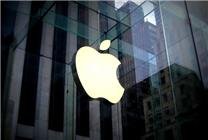Is Apple Still the Same? A Reflection 14 Years After Steve Jobs
Summary:
- Tim Cook commemorates Steve Jobs, marking the 14th anniversary of his passing.
- Jobs’s legacy transformed technology with innovations like the iPhone and iPod.
- The evolution of Apple under Cook prompts questions about its identity today.
On October 5, 2023, Apple CEO Tim Cook shared a heartfelt message commemorating the 14th anniversary of Steve Jobs’ passing, a moment that resonates deeply with many technology enthusiasts. Cook’s tribute reflects not just a personal bond, but a profound acknowledgment of Jobs’ indelible impact on the company and the tech industry at large.
"Steve believed that the future is bright and brimming with infinite possibilities, illuminating our path forward and inspiring us to keep moving ahead. We miss you, my friend," Cook conveyed in his message. This sentiment underlines the foundational ethos that Jobs instilled in Apple, which remains a guiding principle as the company continues to innovate.
The Legacy of Steve Jobs
Steve Jobs returned to Apple in 1997, steering the company through financial turmoil and toward unprecedented success. His vision birthed iconic products, including the iMac, iPod, and iPhone, revolutionizing how we interact with technology. The introduction of the iPhone, in particular, launched a new era of mobile internet and redefined the smartphone landscape, while the iPod transformed music consumption.
Jobs’s influence extended beyond product development; he reshaped entire industries. The Macintosh facilitated a new approach to personal computing, while his efforts led to significant innovations in digital publishing and tablet computing. This legacy raises an intriguing question: Is Apple still the same innovative force under Tim Cook’s leadership?
Apple’s Evolution Under Tim Cook
Since Jobs’s departure in 2011, Tim Cook has overseen a period of extraordinary growth for Apple. Under his guidance, the company has significantly expanded its product lineup and services, introducing new offerings such as the Apple Watch, AirPods, and Apple Music. Cook has emphasized a commitment to sustainability and privacy, aiming to align Apple’s operations with modern ethical standards.
However, some industry analysts argue that while Apple maintains financial success, the spirit of innovation that characterized Jobs’s tenure appears diminished. Critics point to a perceived stagnation in revolutionary advancements, contrasting Cook’s approach with Jobs’s relentless pursuit of bold ideas.
Innovation vs. Iteration
While Apple continues to generate record-breaking revenues, it has shifted its strategy towards refining existing products rather than producing radically new ones. The annual iPhone release, for instance, often features iterative enhancements rather than groundbreaking innovations, leading some to question whether Apple is merely riding the coattails of its earlier successes.
The introduction of services like Apple TV+ and Apple Arcade signifies a strategic pivot, focusing on recurring revenue through subscriptions rather than solely hardware sales. This transition reflects an evolving tech landscape that increasingly prioritizes software and services over traditional product hardware.
The Outlook for Apple
As we remember Steve Jobs and his immense contributions to technology, it is essential to consider what Apple’s future holds. Will the company continue to lead with innovative breakthroughs, or will it remain in a cycle of iterative improvements? The challenge lies in blending Jobs’s visionary spirit with Cook’s pragmatic approach to ensure sustained success in an ever-changing market.
In conclusion, Apple’s identity may be shifting, but its core principles established by Jobs—innovation, quality, and user experience—continue to guide the company. As we reflect on Jobs’s legacy, it prompts us to consider the company’s trajectory and potential for future innovation.
Final Thoughts
The anniversary of Steve Jobs’s passing serves as both a remembrance of his legacy and a crucial point of reflection for Apple. As the company navigates today’s technological landscape, honoring its founder’s visionary spirit while adapting to modern demands will be key to maintaining its status as a leader in innovation.
In this era of rapid technological advancement, the question remains: Can Apple rediscover the fearless innovation that characterized its past? Only time will tell, but the company’s journey under Tim Cook continues to be one of intrigue and possibility.









